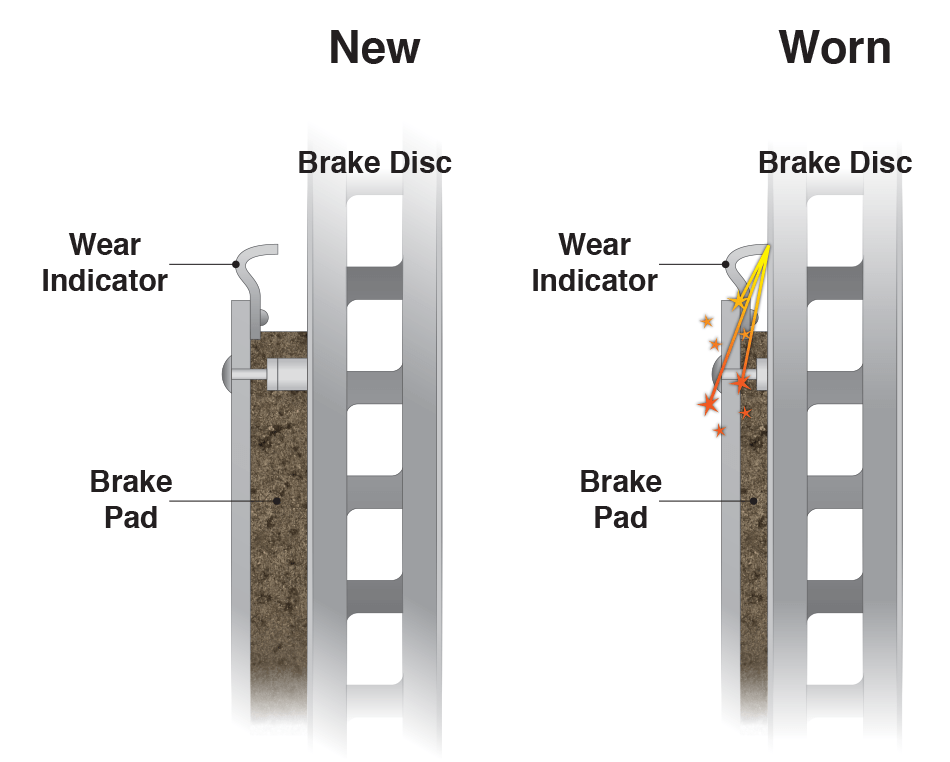This topic is one of the most talked about issues in the aftermarket performance braking industry. This is because a majority of drivers want all the performance in the world, but the comfort levels of a base road brake pad. Fair enough too! In the industry we call this the ‘Unicorn Pad’ because despite what some less conscientious sellers will tell you – it doesn’t exist. Not yet anyway.
We’ll go into more detail, but in short – brake squeal is most commonly one of a few things:
- Worn out brake pads
- Debris in or around the brake system
- High frequency vibration in the brake system of your car.
For of all, let’s just clarify what type of vehicles and products we are mainly talking about here. We’re not really talking about brand new cars just off the showroom floor (although in some cases brake noise is an issue – read on for more info on the recent court cases for Audi, Porsche and Lexus!) and we are not really talking about cars used in professional motorsport. Cars used in motorsport are not designed for comfort, just performance. Brake noise doesn’t matter – so long as the car is fast!
So, we are mainly talking about road registered cars that enthusiasts are modifying for improved braking performance, whilst at the same time needing a level of comfort suitable for road use. Examples may be cars used for track days, heavy duty applications, 4×4 or towing, street performance etc. These cars tend to be used by enthusiasts at the track, off road, and on the street to run to the shops.
Common cause of brake squeal
Pads worn out
This sounds fairly obvious, but sometimes brake noise is just the fact you’ve worn them out! Cars that do not have electronic sensors for pad wear installed will normally be fitted with pads that have small clips attached to the steel backing plate that will rub on the disc when your brake pads are ready for replacement. This is simply a matter of checking the brake for wear. Don’t forget to check ALL brake pads as wear rates can vary from left to right, and inner to outer.
Foreign material in your brakes
Sometimes brakes can end up with dirt, stones, grit or whatever in them. These materials can get lodged in the caliper or around the brake area and can make plenty of noise! This is normally easy to identify as these materials tend to leave marks, scratches etc on the disc surface. This is just a matter of removing the debris and cleaning the brakes. If the brakes are damaged, you’ll need to repair or replace them.
High frequency vibration caused by friction
As already mentioned, brake squeal is a high-frequency vibration which is instigated by the brake pads friction material contacting the brake disc surface when you put your foot on the brake pedal. Of course, this is what slows the car – brake pads on opposing sides of the disc, with pressure applied to them by the pistons in the brake caliper which squeezes the rotating disc which causes the friction and temperature that forces the car to slow.
Even though the friction between the pad friction surface and disc face is the instigator of brake squeal, it is not always that location that is squealing. To get scientific (I’m not a scientist) vibration is caused by the rapid motion of materials or particles, oscillating back and forth. One of the by-products of this motion is noise – normally a type of squealing sound and occasionally a kind of groaning. This sound can be emanating from the discs or other components around the brake system.
Important: Higher friction / performance = higher likelihood of squeal.
A common scenario: – you have decided you need more performance from your brakes. The pads are the main upgrade point, so you purchase a new set of performance or track day style brake pads, and possibly some replacement discs and (if you had the right advice) some performance brake fluid as well. The brake system is now in good condition but once installed, some noise in operation is noticed. Yes, the performance is brilliant, but you are uncomfortable with the noise level. So, what do you do about it? Read on.
From here on, we’ll be concentrating on the third point – squeal caused by vibration caused by friction. This issue is the tricky one, the others are easily fixed by carrying out some maintenance. This one is tricker because it has so many variables and possible causes.


